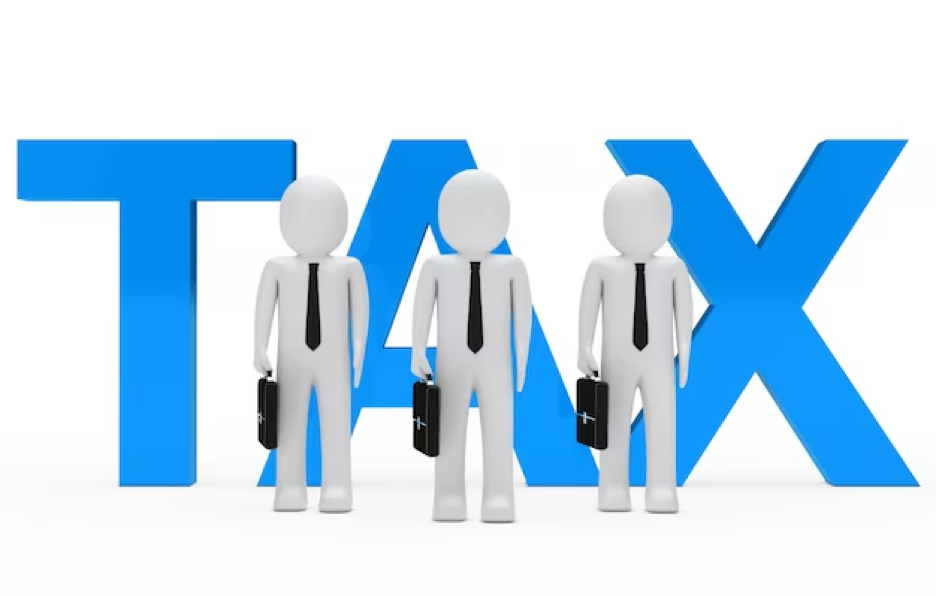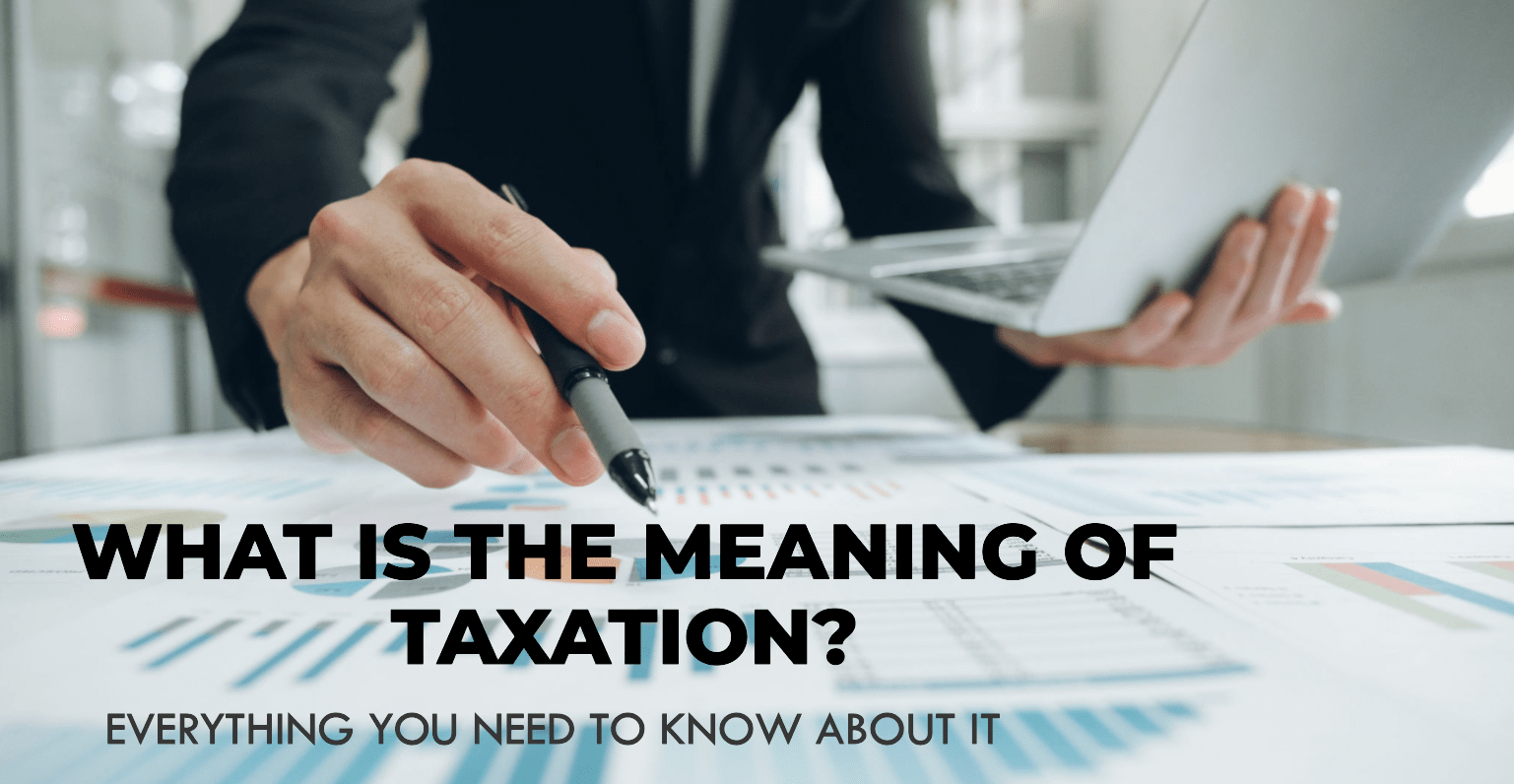Taxation in the UAE is a fundamental pillar of modern society, playing a crucial role in funding public goods and services that we rely on every day. It’s like the government’s way of collecting money from individuals, businesses, and other entities to make sure things keep running smoothly.
In this comprehensive article, we’re going to dive deep into the fascinating world of taxation. We’ll explore its purpose, the different types of taxes you need to know about, the principles that guide it, and most importantly, how it impacts us and society as a whole.
Get ready!
What is Taxation in the UAE and its Purpose

Taxation, in simple terms, refers to the process through which the government collects money from individuals, businesses, and other entities to fund public goods and services.
It has a few important goals that it helps accomplish. Let’s break them down in a casual yet professional way:
Revenue Generation
One of the main reasons we pay taxes is to help the government raise money. This money is then used to fund all sorts of important things that benefit everyone. We’re talking about stuff like building roads, improving healthcare, supporting education, defending the country, and taking care of social welfare programs.
Redistribution of Wealth
Another purpose of taxation is to make sure that wealth is distributed more evenly. To do this, taxes are often designed to target people who earn higher incomes and businesses that make more money.
By doing this, the government can provide benefits and services to those who need them the most. It’s a way of helping to reduce income inequality and make sure that everyone has a fair shot at a good quality of life.
Regulation and Control
Taxes can also be used as a way to influence people’s economic behaviour and manage certain things in society. For example, the government can use tax incentives to encourage activities that are good for the environment, like using renewable energy sources.
On the other hand, they can discourage activities that are seen as harmful, like smoking or drinking excessively, by imposing higher taxes on tobacco and alcohol. Additionally, taxes can be used as a tool to help manage things like inflation and keep the economy stable.
What is the Impact of Taxation in the UAE?
Taxation has wide-ranging effects on individuals and societies, both directly and indirectly. Firstly, tax revenues play a crucial role in financing public goods and services that benefit society as a whole. These funds are used to support essential sectors like healthcare, education, infrastructure development, and social welfare programs, improving the overall well-being of the population.
Secondly, taxation can help address income inequality through progressive tax systems. By transferring wealth from higher-income individuals to lower-income individuals, these systems aim to create a more equitable society.
Additionally, taxes can influence economic behaviour by providing incentives or disincentives for certain activities such as investment, consumption, and savings. Proper taxation policies can also contribute to economic growth by funding infrastructure projects, education, and research and development, which are vital for long-term prosperity.
Lastly, taxation is a critical component of government revenue, enabling the government to fulfil its financial obligations, including debt repayment and public sector salaries.
Principles of Taxation in the UAE

When it comes to taxes, there are some important principles that guide how they’re designed and implemented. Let’s dive into these principles:
Equity
The idea here is fairness. Taxes should be distributed in a way that takes into account a person’s ability to pay. To achieve this, progressive taxation is often used. What does that mean?
Well, it means that higher earners end up paying a higher percentage of their income in taxes, while lower earners pay less. It’s a way of making sure that everyone contributes based on their means.
Simplicity
Nobody likes complicated stuff, especially when it comes to taxes. That’s why tax systems should be simple and easy to understand. They should be straightforward for taxpayers to comply with, and they shouldn’t be a headache to administer. By keeping things simple, we can minimize confusion and reduce the costs associated with tax compliance.
Efficiency
Taxes should be designed in a way that doesn’t mess up the economy. We want to minimize any negative impact on economic growth and make sure things run smoothly. So, tax structures should be set up to minimize any distortions in the economy and promote efficiency. That way, we can keep the wheels turning and the economy humming along.
Certainty
Nobody likes surprises, especially when it comes to taxes. Taxpayers should be able to plan and predict their tax obligations with a reasonable level of certainty. It’s important to have clear rules and guidelines in place so that people can understand what they need to pay and when they need to pay it. Certainty helps everyone stay on track and avoid any unexpected tax shocks.
Neutrality
Tax systems should be neutral and not play favourites. They shouldn’t unduly influence economic decisions or give special treatment to specific industries or activities. The goal is to create a level playing field where everyone has an equal chance to succeed without tax biases getting in the way.
Adequacy
Taxes need to bring in enough money to cover the government’s expenses and obligations. We want tax revenues to be sufficient to meet all the needs and requirements of the government. That way, we can ensure that public services, infrastructure, and other important things are adequately funded.
Types of Taxes in the UAE
When it comes to taxes, there’s a whole bunch of them, each with its own purpose and way of being collected. Let’s take a look at some of the main types:
- Income Tax: This one hits both individuals and businesses based on how much money they make. It’s like a percentage that gets taken out of your income or profits.
- Sales Tax: You’ve probably seen this one when you go shopping. It’s a tax added to the price of goods and services at the moment you make a purchase. So, when you buy that cool gadget or enjoy a nice meal at a restaurant, a little extra goes to the government.
- Property Tax: If you own real estate, like land, buildings, or homes, you’ll come across this tax. It’s calculated based on the value of your property, and it helps fund things like local services and infrastructure.
- Corporate Tax: This tax targets businesses and corporations, specifically their profits. It’s like a cut the government takes from the money companies make.
- Value Added Tax (VAT): Here’s a tax that likes to sneak its way into the supply chain. At each stage of a product’s journey, a little tax is added. And guess what? The end consumer ends up paying for it. So, it’s a way for the government to collect a bit of money from each step of the process.
- Excise Tax: This one is all about specific goods and services. Things like tobacco, alcohol, gasoline, and fancy luxury items get hit with an extra tax. It’s a way for the government to both raise money and maybe even discourage people from buying too many of these things.
- Customs Duties: When things cross borders between countries, this tax comes into play. It’s levied on imports and exports, so it affects the goods that come in and go out of a country.
Conclusion
In conclusion, Taxation is an essential mechanism for governments to generate revenue and fulfil their roles in providing public goods and services. It serves multiple purposes, including revenue generation, wealth redistribution, and economic regulation.
Understanding the types of taxes, principles guiding taxation, and their impact on individuals and societies is crucial for informed citizenship. By comprehending taxation, individuals can actively participate in discussions about tax policies and their implications on the economy and society as a whole.


